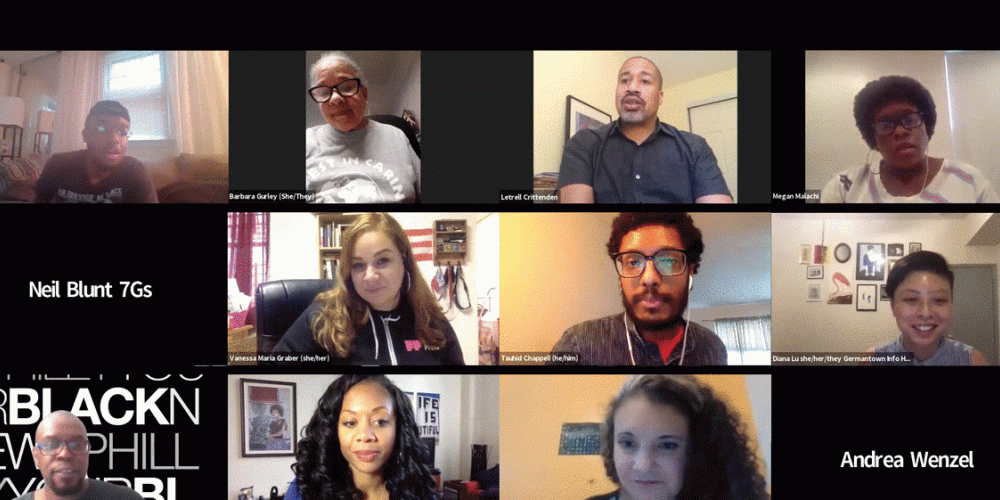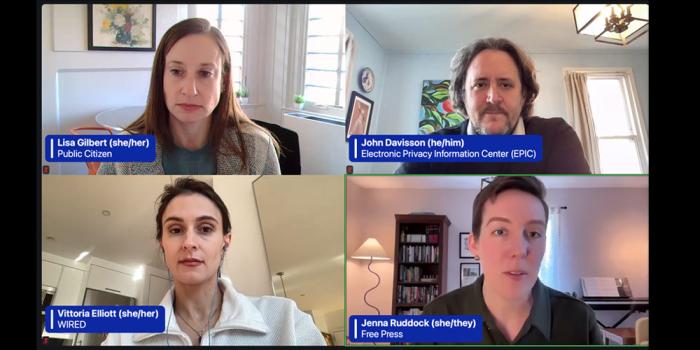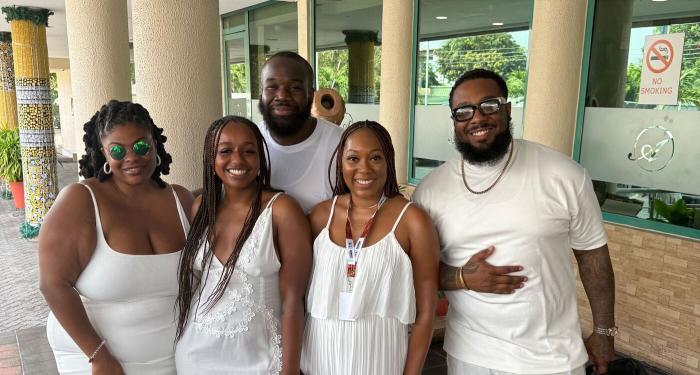Philadelphians Examine Coverage of Policing & Violence

The uprisings following the police murders of Breonna Taylor, George Floyd, Tony McDade and other Black lives have reignited conversations around policing, gun violence and the criminal-legal system in Philadelphia.
Activists, other residents and journalists have all demanded a response from elected officials and the local police department over the violent responses to peaceful protests that called for the defunding or abolishment of police. People are advocating for solutions that would address deep-rooted problems in the city around overpolicing and the gun-violence epidemic.
Late last year, Free Press launched an ambitious initiative to transform local reporting on crime, policing and the criminal-legal system in Philadelphia. Since then, we’ve been working with local groups to hold the media accountable for their coverage, call on city officials to protect reporters’ First Amendment rights and demonstrate solidarity with journalists who are pushing for greater equity inside their newsrooms.
As we organize alongside journalists and community members to challenge reporting that centers police narratives and ignores or misrepresents residents’ voices, it’s important to understand what types of media coverage can better meet community needs and better reflect people’s perspectives. That’s why we recently partnered with local-news outlet Germantown Info Hub to hear from residents about their information needs on these issues.
Philadelphians want a different approach to crime coverage
Crime coverage by local-media outlets has long been a source of frustration for community members in Philadelphia. This reporting has led to deep mistrust, division and lack of confidence in journalists’ roles as watchdogs guarding against corruption and complacency.
Our virtual community conversation, which brought together more than two-dozen Germantown residents, local journalists and other people from around Philadelphia, was an opportunity to examine how the local media have covered the uprisings, overpolicing and the criminal-legal system. The discussion elevated the experiences of community members who’ve tried to address long-standing issues around public safety and policing — and was a transparent dialogue that allowed journalists to understand what information they’d missed, and what they could improve on.
Participants included community activists, social-service workers and journalists. They were asked to read one of two stories: one from WHYY about the defund-police movement, and one from The Philadelphia Inquirer that focused on the city’s anti-violence programs, which were quietly rolled out amid lingering concerns.
People were divided into small intimate groups comprised of journalists and community members to discuss one of the two designated stories. The groups discussed the following questions:
- What did you learn from this article?
- What information do you think is missing / what information would you like to have seen?
- When it comes to coverage around this issue, what kinds of information should a news story always have?
- What questions do you still have about policing, public safety or defunding police?
By listening to residents describe what information is important, valuable or missing in stories about policing, journalists can learn from people impacted by the issues and rise to the challenge of addressing gaps in reporting. These kinds of conversations also give community members the opportunity to learn how local journalists approach covering these stories and how the reporting comes together.
Residents shared a number of observations about what they need — and don’t need — from coverage of policing, public safety and anti-violence programs. Participants were interested in:
- The disconnect between communities’ assessment of local needs and assessments from police and politicians
- More data and statistics to bring nuance, perspective and clarity to the conditions that reinforce and correlate overpoliced neighborhoods with rooted issues of poverty and violence
- More clarity around the words “defund” and “abolish,” and more reporting that speaks to those movements and alternatives that are working
- Reporting that follows the money in the city budget
- Reporting that sheds light on the people and agencies that influence how the police department and the city’s anti-violence programs are supported or funded
- More historical context of solutions and programs that worked in the past, and more scrutiny over how anti-violence programs are addressing (or failing to address) community issues
- More spotlight on community organizations that are already doing the work to address overpolicing
- More coverage of social-service workers who could benefit from more funding to address issues that are currently in the police’s domain
- More community voices and quotes and less emphasis on the perspectives of police and academic experts
One overarching response we heard was the need for more time to discuss these issues. People shared an eagerness for further conversations about how the media cover and shape narratives on the police and public safety. People said they were also craving the time and space to discover and imagine solutions that would inform and civically engage local residents.
This kind of approach to deeply examining the impact of media coverage on local communities is a practice that journalists can support and encourage. Reporters need to prioritize how they center, uplift and involve the public in their coverage and commit to participating in these kinds of community engagements to better understand how to address people’s information needs.
Free Press will continue to work with Germantown Info Hub, and will be doing direct outreach to communities around the city to host conversations between journalists and community members. We envision a future where coverage of the criminal-legal system better meets people’s needs and builds trust with journalists and the communities they serve.
Check out our virtual conversation:




